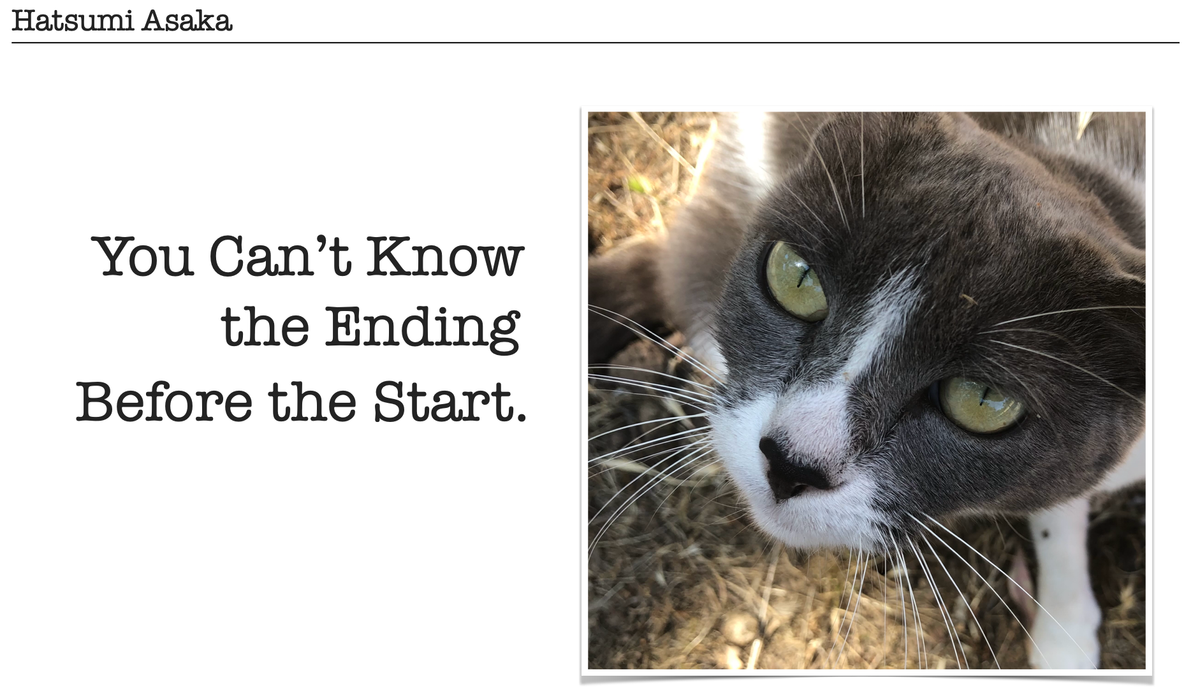The Tipping Point Between Resistance and Commitment

I still remember the day I was promoted from assistant to director, even though it feels like a lifetime ago.
As I touched on in my last blog post, assistant directors in Japanese TV and commercial production aren’t expected to be creative as much as they’re expected to be tough, physically and mentally. The hours were brutal, and I was constantly exhausted. One of my fellow assistants, who sat at the desk next to mine, once bent down to open a drawer and, completely sleep-deprived, fell asleep mid-motion with her forehead resting on the edge of the desk.
I worked each day dreaming of the moment my assistant days would be over. So when my boss suddenly called me into the office and told me I’d been promoted, you might think I jumped for joy. The truth? I didn’t.
Despite how draining that chapter had been, I felt a strange sense of hesitation about moving up. I had, after all, figured out how to survive in the chaos. But stepping into the role of director meant something else entirely—it meant pitching ideas, leading shoots, and managing a team. It meant having an assistant of my own and wondering how I’d take on that responsibility.
In that moment, status quo bias hit me hard. I couldn’t celebrate the promotion wholeheartedly—not right away.
For a while, I stayed stuck in hesitation. What makes that time still stand out in my memory is how emotionally heavy it felt. To be clear, I don’t mean to say that “moving forward” is always good, or that “not doing” something is bad. Those are simply choices — one isn’t better than the other. But what I’ve realized is this: lingering too long at the tipping point — unable to decide — makes everything feel heavier than it needs to.
Eventually, my indecision ended with a bit of a push: a sharp, impatient pep talk from my boss. Not a very graceful story, I’ll admit. But what surprised me was this — as soon as I committed to becoming a director, I felt physically lighter. I hadn’t done anything yet. I hadn’t taken a single step. Still, just crossing that mental line lifted the weight.
Looking back, I think I would have felt the same relief even if I’d chosen not to take the promotion. The relief didn’t come from the direction I chose. It came from stepping through the tipping point itself.
I never want to go back to that gray, dragging emotional standstill. However, the truth is that I didn’t fully understand what that state was until years later.
There was a professional wrestler in Japan named Antonio Inoki. A larger-than-life figure in the world of combat sports, some may know him as the man who faced Muhammad Ali in a cross-disciplinary match back in the 1970s. He was an unconventional figure — a professional wrestler who also served in Japan’s parliament during his career — and was known as “The Blaze of Fighting Spirit”, a nickname that captured not just his presence in the ring but the fiery passion he carried with him everywhere he went.
I was never interested in wrestling, and I rarely watched his matches. But around the time I started finding my rhythm as a director, I happened to see an interview clip of Inoki that completely caught me off guard. It was just before a major match that had wrestling fans across Japan on edge. He was being interviewed in his dressing room when the reporter asked, “What if you lose…?”
Inoki snapped back: “What kind of idiot thinks about losing before a fight?” — and then, shockingly, he slapped the reporter across the face.
I was horrified by the violence, but the words hit me like a bolt.
It’s ridiculous to sit around worrying about failure before you’ve even stepped into the ring—or into anything, really. That, I realized, was the hesitation I’d felt when I was promoted from assistant to director. I’m sure others had tried to tell me the same thing before, probably in gentler ways.
But it was Antonio Inoki’s blunt, unapologetic line that finally pierced through.
Over time, it became something of a signature move—fans would line up to be slapped by Antonio Inoki, hoping it would fire them up, as if his hand could transfer some of his intensity.
As for me, I’ve never once wished to be hit by a pro wrestler—but that one line of his still sticks with me. And honestly, I kind of love it.
